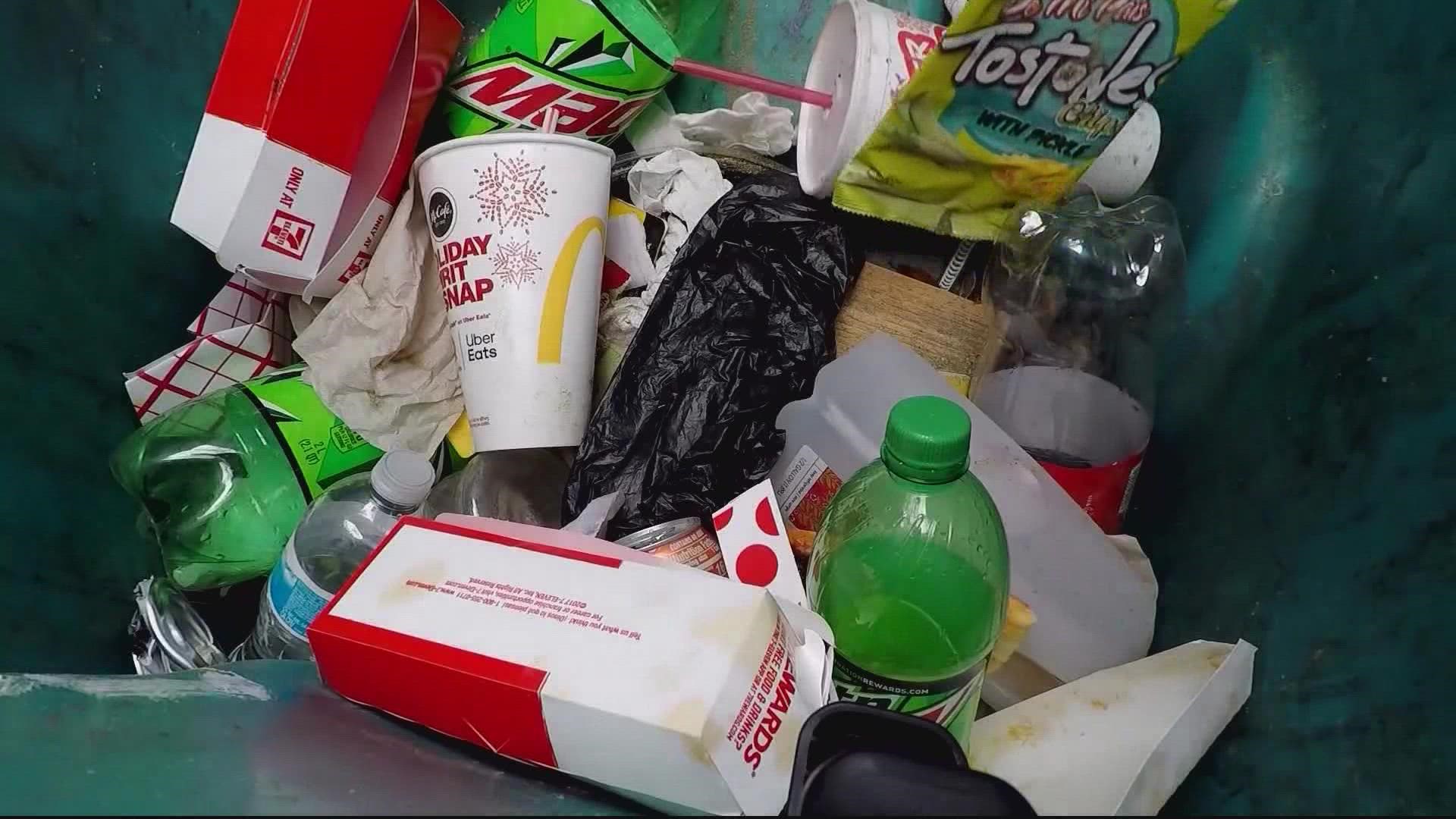WASHINGTON — America's latest recycling report card shows a failing grade. A new Greenpeace study found that paper, cardboard and metals are all recycled at a high rate, but plastic continues to be trashed. In fact, an alarmingly low percent of household plastic waste is being recycled, even as production increases.
Thousands of households across the country haul plastic recycling to the curb every week, but the report from Greenpeace calls it a "dead-end street." According to the report, U.S. households generated about 51 million tons of plastic waste in 2021, but only 2.4 million tons were recycled. That's only 5%.
"Plastics are just really difficult to recycle, and that's why these numbers are so low," said Lisa Ramsden, Senior Plastics Campaigner for Greenpeace.
The difficulties range from basic economics to contamination. The plastics industry is advocating chemical recycling to reuse material. CBS News spoke with Jeremy DeBenedicts, president of Alterra Energy to learn how the process works.
"We bring in used plastic, we heat it up, we vaporize it, and we have a phase change separation from all the fillers and dyes and inks that are in that plastic," DeBenedicts said.
Greenpeace argues the technology is unproven and it doesn't solve the whole issue.
"By focusing on chemical recycling, we're ignoring the rest of the problems that plastics create," Ramsden said.
One way for consumers to be involved in the solution is to stop buying single-use plastic, and use refillable containers instead.
Rachel Garcia owns Dry Goods Refillery. It's a plastic-free grocery store where customers bring their own refillable containers.
"The idea of bringing your own container isn't something new and novel. I want it to feel like in five years this is so normal that it's like your coffee shop, or like your pizzeria. That there can be one in every town," Garcia told CBS News said.
More stores like Garcia's have popped up in recent years, but the practice is still far from common.
Greenpeace says its up to consumers and legislation to ultimately turn the tide on plastic.

